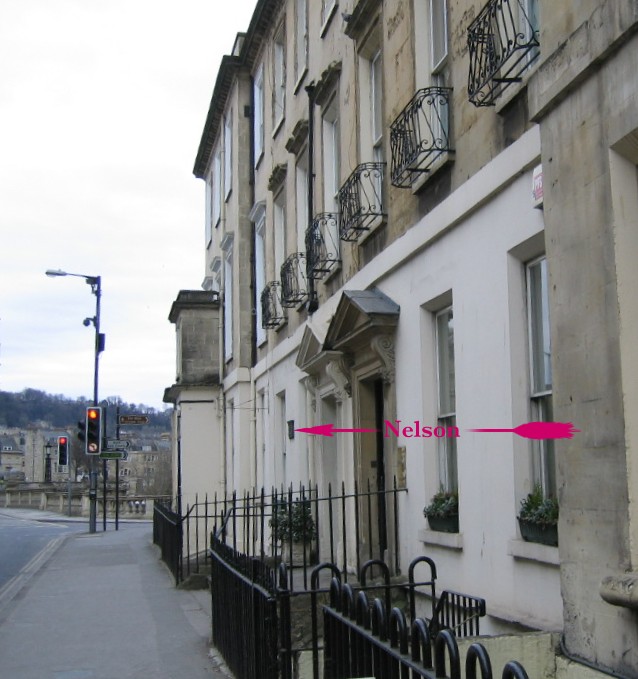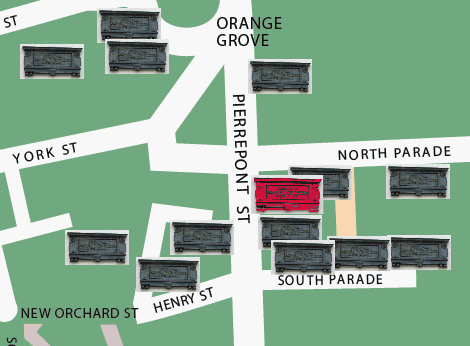Lord Horatio Nelson
Who was he?
Wikipedia:
Horatio Nelson, 1st Viscount Nelson, 1st Duke of Bronté, KB (29
September 1758 – 21 October 1805) was an English flag officer famous
for his service in the Royal Navy, particularly during the Napoleonic
Wars. He won several victories, including the Battle of Trafalgar in
1805, during which he was killed.
Why was he in Bath?
According to
Sugden (2005):
"In Nelson’s day health meant one place
above all others: the town of Bath ... the last word in resorts for
ailing men and women of fashion. It was an eighteenth century health
farm with a clientele that included almost every layer of the ‘gentler’
classes, from royalty to parsons. Horatio had known about it most of
his life. His father regularly wintered there, and his sister Susanna
had served her apprenticeship at Watson’s, a local milliners, before
working as a shop assistant in the town until she married in 1780.
Almost everyone had heard of the famous but mystical healing properties
of Bath’s thermal spring waters, and Nelson believed the stories
implicitly. Accordingly, the Bath Journal of 22 January 1781 proclaimed
his arrival in the town in its customary roll call of visiting
dignitaries. (pp 182-3)
"The town had numerous attractions. It was packed with apothecaries and
physicians, a few of them respectable, but many peddling cure-all
cordials and pills to the sick, old and lame. The waters, they said,
relieved everything from gout and jaundice to deafness and infertility,
whether imbibed in the Pump Room or taken immersed to the neck in one
of the five baths.
Nelson "boarded in the house of an apothecary, Joseph Spry, at no. 2
Pierrepont Street":

"It was a mid-terrace property with attic windows in
the pitched roof
and a basement for the servants, but Nelson probably occupied the
ground floor to the left of the front door because his legs were still
extremely weak."
[Sugden 2005]
Nelson's father, Edmund, lodged across the road at number 9 and "nursed
his son on arrival until he became more mobile".
[Hodgkin
2004]
Whittet (1983) gives some additional
information:
"Whilst a young Captain he stayed with Joseph Spry at 2 Pierrepont
Street, from the autumn of 1780 to August 1781, and again in 1797 when
he paid £2 for medicines 'to his old friend Spry the apothecary'
whilst lodging with him after the loss of an arm. Spry was then in
Argyle Buildings."

The text reads
"Here dwelt Admiral Lord Nelson b. 1758 d.1805"
Location map of 2 Pierrepont Street

(c) 2012
Bath-Heritage.co.uk | Contact us|




